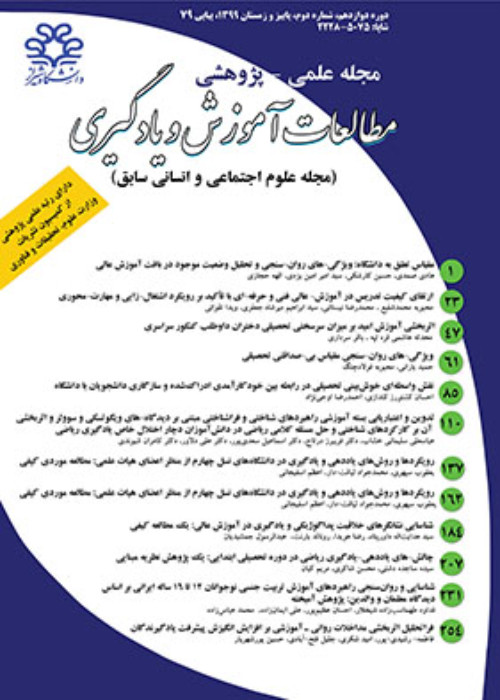Designing Blended Learning Based on Virtual Social and Determining its Effectiveness on Self-regulation, Social cognition process and Academic Performance
The purpose of this study was to design a blended learning model based on virtual social networks with social constructivist approach and determine its effectiveness on academic performance, academic self-regulation and social cognition of teacher students. The blended learning model, having been developed based on virtual, social, and training protocols, was validated by experts. The effectiveness of the model was verified through a quasiexperimental study whose statistical population consisted of teacher students in Farhangian University. A sample of whom 75 undergraduate teachers were selected through convenient sampling from Shahid Hashemi Nejad Campus in Mashhad and were randomly divided into three groups of 25, each receiving instruction through blended learning, in-person education, and virtual social networks for 10 sessions. Data in the study encompassed the participants’ responses to Academic Performance Test, Pintrich and DeGroot’s SelfRegulation Strategies Questionnaire (MSLQ) and Nejati’s Cognitive Abilities Questionnaire in pre-test and post-test phases. Data were analyzed using ANOVA and MANOVA, with SPSS 24, to examine the difference between the participants’ pre-test and post-test scores. The results suggested that instruction through virtual social networks had a significantly higher effect on the academic performance of the students compared to the other two educational methods. On the other hand, the students in blended learning group had higher academic selfregulation and social cognition than those who received instruction through virtual social networks. Nevertheless, there was no significant difference between social cognition and academic self-regulation of students in blended learning group and in-person group.
- حق عضویت دریافتی صرف حمایت از نشریات عضو و نگهداری، تکمیل و توسعه مگیران میشود.
- پرداخت حق اشتراک و دانلود مقالات اجازه بازنشر آن در سایر رسانههای چاپی و دیجیتال را به کاربر نمیدهد.






